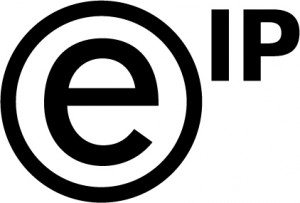Securing a training place as a patent attorney is not easy. The profession remains one of the smallest in the UK, yet awareness of this niche career sector is growing, inevitably leading to competition. Your chances will be increased if you have the unusual blend of skills necessary and invest time and effort in the application process. Here, Polly Shaw, Head of HR at Dehns, offers her advice on how to complete successful IP applications.
When and how to apply
Many private practice patent firms (such as where I work) operate annual recruitment cycles with a scheduled bulk intake of trainees. Usually these firms will still accept speculative applications throughout the year as well, but it is best to check IP Careers’ website, as well as individual firm’s websites, for the latest trainee patent attorney vacancies.
Most firms will now ask you to apply via a bespoke online application process, and some may also ask for submissions of written descriptive work. You may be tempted to fire off as many of these applications to as many varied firms as possible. However, you will generally need to research each firm to make sure that your approach is correctly tailored to their practice, the type of work they take on and their clients – exhausting! Better to therefore think about what you want from a firm before committing metaphorical pen to paper, as it is always quality, not quantity, that matters most when submitting applications. In this respect, firms will usually try and help you out a bit on their websites by describing some typical aspects of working life there.
Think about key questions that matter to you and whether each firm applied to will cater to your needs and interests. For example, what kind of firm size and culture appeals? Do you want to experience different offices throughout your training on a rotation system, or stay in one place? What kind of clients do you want to work with? Is it important to you that you work with a range of partners and clients?
Details matter! You are applying to join those who excel at language and attention to detail – never underestimate how much your use of spelling and grammar will affect your first impression.
CV and cover letters
Writing a cover letter or explaining why you are applying to a particular firm? Think very carefully about this. We don’t ask for the sake of it. We want to know we are investing valuable recruitment time in people who have researched what we do, how we do it, and why this might suit both parties. Equally, make sure you are not just repeating a firm’s own recruitment brochure back to them as part of this. We paid someone to write that – we know what it says.
It can be hard to portray oneself as unique on paper without sounding a little ‘out there’. This is a recruitment jungle where it can seem all about the academics, but don’t be fooled. It’s true that you need to be super capable – we are looking for people that excel at science, can put together logical and articulate prose, grapple with the pace of change and invention, formulate coherent and future-proof arguments, as well as get along with clients to build and retain business.
It can be an impossible task to find someone who ticks all these boxes. Firms know this and are not expecting the finished article to land on their doorstep. It is about promise and potential. Have a think about the areas of your experience that you can point to which back up your application. Have you won prizes? Published research? Previously involved yourself in presenting? A common pitfall in this career is relying on the science side to get you through – many can struggle applying this in a practical sense to logical and persuasive writing and client relationship building, so consider what makes you ideally suited in principle all-round.
Recruitment tests
You may find that firms have some automated assessment tests as part of their selection process, usually to try and understand your use of language and attention to detail. Such assessments will usually be under timed submission conditions, and it is important to remain calm and finish the tests. The software will often give you the chance to have a practice go; so take up this opportunity.
You may be asked to submit a description of a particular object in order for your powers of analysis and explanation to be assessed. You are not expected to know everything, but what matters is how you approach describing your object, and the language you use to do so. It is important to be as precise, logical, and clear as possible. Keep in mind the difference between defining and describing an object and you will be on the right track.
The Interview
Interviewing style differs from firm to firm. Some will focus on technical questions. Others will ask more about what you know about the profession and why you want to be a part of it and their firm in particular, so remember to mention why you are interested in that firm above others.
Don’t be afraid if you don’t know an answer, but try and offer a logical alternative to show how you have still engaged with the question and given it consideration. Make sure you have some questions for the interviewer, too. For example, ask them what has kept them at their current firm or what it is like to work there and what the current training culture is like.
If at first you don’t succeed…
Patent firms often don’t have the same trainee intake as some other professions so don’t be disheartened if it is not an immediate success and if it is what you really want. Ask for feedback and keep trying.
Polly Shaw is Head of HR at Dehns. Responsible for promoting graduate recruitment, she previously worked in HR roles with commercial law firms after studying history and law.






